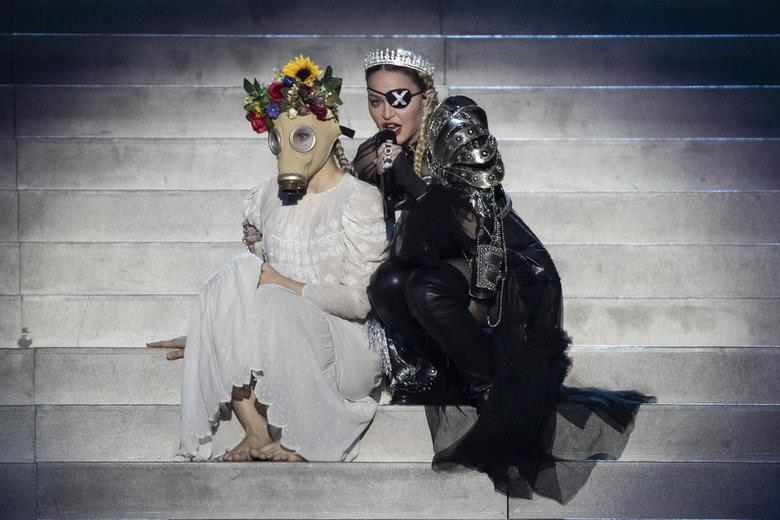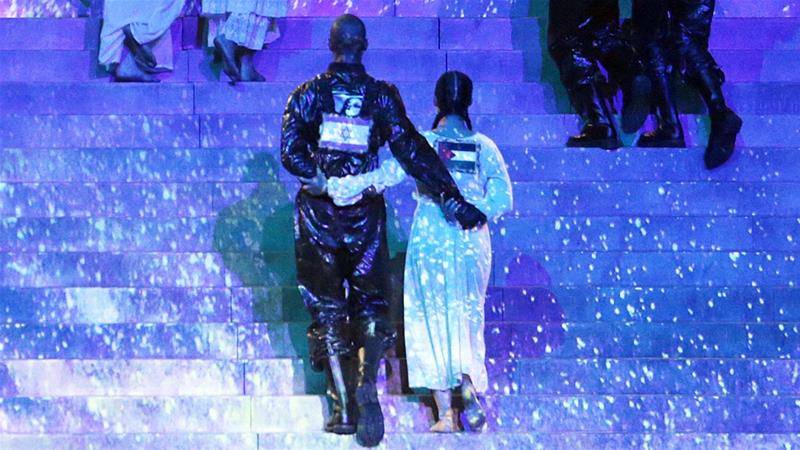Italian Contestant Mahmood Wins 2nd Place at Eurovision
Class of 1992, born and raised in the periphery of Milan, the son of an Italian mother and Egyptian father, Alessandro Mahmoud - a.k.a Mahmood - already made headlines in Italy after winning the latest edition of the Sanremo Music Festival in February 2019, a result that did not please everyone.
His single “Soldi,” with which he chose to compete at both Sanremo and this year’s Eurovision Song Contest held in Tel Aviv, was a huge hit, earning platinum status, reaching number one position in all Italian charts, and even making it to the Spotify Global Top 50. However, certain people - most notably Italian Vice Prime Minister Matteo Salvini - were unsatisfied by his victory at Sanremo.
“Mahmood …mah…the most beautiful Italian song? I would have chosen #Ultimo,” tweeted Salvini during the finale. Unsurprisingly, the Minister took issue with the singer’s “pedigree”: he didn’t deem him Italian enough to win an Italian song contest, no matter the fact that Mahmood is indeed a citizen, born and raised in Italy, and even sings in Italian.
Not wishing to be left out of the discussion, (politicians get ‘FOMO’ too) Italy’s other Vice Prime Minister, Luigi Di Maio from the Five Star Movement, chimed in by commenting that Mahmood’s victory only represented the opinion of the country’s “radical chic” elites which made up the jury and not that of the people, a tricky statement to support considering the widespread popularity of his music.
Despite these and several other negative reactions, Mahmood was chosen to represent Italy in this year’s Eurovision, an annual competition between mostly (but not exclusively) European countries. Since Italy was one of the seven countries present for the first ever Eurovision in 1956, it is one of the "Big Five" countries that automatically qualify for the final.
The Milanese singer was one of the favored candidates for this year’s edition, but in the end the award went to Netherlands contestant Duncan Laurence and his romantic ballade “Arcade.”
“I don’t feel any disappointment nor remorse,” comments Mahmood, “this has been the biggest success in my career so far.” Beyond scoring second place, the 27-year-old also took home the Composer Award, something which is particularly remarkable considering that he is one of the few contestants who chose to sing in a language other than English. “They told me that it’s the first time an Italian song wins this award,” he explains.
“Soldi” is a catchy Trap / Hip Hop / Pop track, with influences from traditional Arabic music. The video’s aesthetic matches the singer’s personal urban minimalist style, hip but understated. It’s an autobiographical song about growing up in the periphery of Milan and focuses particularly on his difficult relationship with his father, whose main preoccupation was money (soldi). It features one line in Arabic “Waladi waladi habibi ta’aleena” (my son, my son, darling, come over here) and is the fourth song in the history of Eurovision to include the language.
This 64th edition of the contest has been a particularly politicized one. An international pro-Palestinian campaign urged artists and the public to boycott the event before it even began. No contestants did however drop out of the show. Madonna’s guest performance then featured two dancers flashing both the Palestinian and Israeli flags, breaking Eurovision rules. Even more controversial was Icelandic Techno Punk group Hatari, who held up Palestinian flags at the end of their performance and might now have to “face consequences”.
So far, despite the provocations of various Italian politicians, Mahmood has (wisely) abstained from engaging in political discussions, letting his music and his story speak for themselves.












































i-Italy
Facebook
Google+
This work may not be reproduced, in whole or in part, without prior written permission.
Questo lavoro non può essere riprodotto, in tutto o in parte, senza permesso scritto.